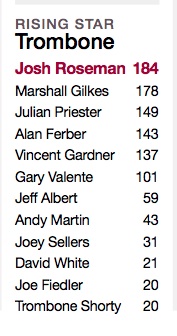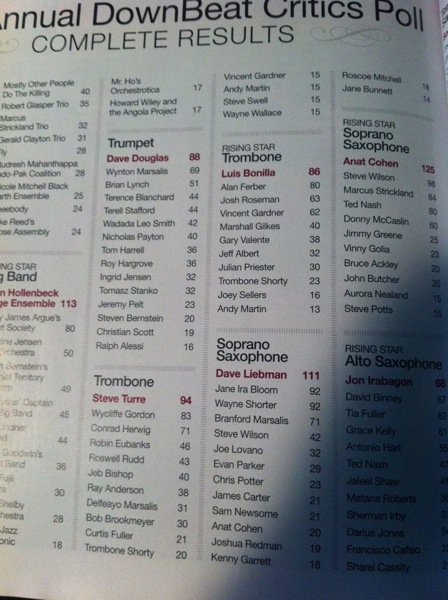I’ve been meaning to write this for a while, but other things have been interrupting. They have been good interruptions, like a fabulous day in the studio recording with Hamid Drake on drums, Joshua Abrams on bass, and as the Godfather of New Orleans’ free jazz, Kidd Jordan on tenor saxophone. Eventually I’ll have solid news on when that will get released.
But the post that has been waiting to get written was actually instigated by an interview with Nicholas Payton on The Jazz Session. If you are unfamiliar with Nicholas or The Jazz Session (hosted by Jason Crane), go ahead and click through that link. It will be worth it.
In the interview, they were talking about Nicholas’ New Orleans roots, and he mentioned playing for dancers. I don’t know that I agree that “none” of the young jazz musicians have played much for dancers. I think anyone who has tried to make a living as a musician and isn’t a nose-in-the-air purist or jazz snob has had to play for dancing at some point. I know I spent large portions (read “almost all”) of my early career playing for dancing. Of course most of my career has been in new Orleans, so maybe I am making Nicholas’ point.
I do completely agree with his point however, that playing for dancers changes the way we play and the way we view what we do. This is in line with a view that has been articulated to me by others whom I also respect greatly.
At the 2006 Chicago Jazz Festival, I was walking from the Velvet Lounge to the festival hotel, with Dutch cornetist Eric Boeren. We were making small talk, and I asked what else he did. He asked what I meant. I said, “what other sorts of things do you play?” He responded that he didn’t do anything else. He was paid by the Dutch government to write and perform his own music. I said I was jealous, and I did all sorts of weddings, and anything else to get paid. He casually commented, “I sometimes wonder if I am missing out on something.”
My friend and colleague Benjamin Lyons has often stated that he feels like the musicians in New Orleans have an interesting take on improvised/creative/free/whatever music because we all do other things as well. We all play music that has a social meaning that can outweigh the pure musical meaning. Second line parades, jazz funerals, weddings, parties, etc. in New Orleans all have music as an integral part of the overall social meaning, but it isn’t so much about the music, as the music is about the event. The fact that we expect music to have this more important social meaning in these contexts, affects the way we make music in our more artistically centered endeavors. Even when we are being artists, we want to see people move.
I am sure that this is not a phenomenon unique to New Orleans, but it is definitely present here. If we all understand how to make a booty shake, or as Jimbo says “make the party happen” then we will all have a better idea of how to make art that connects with and moves people.


